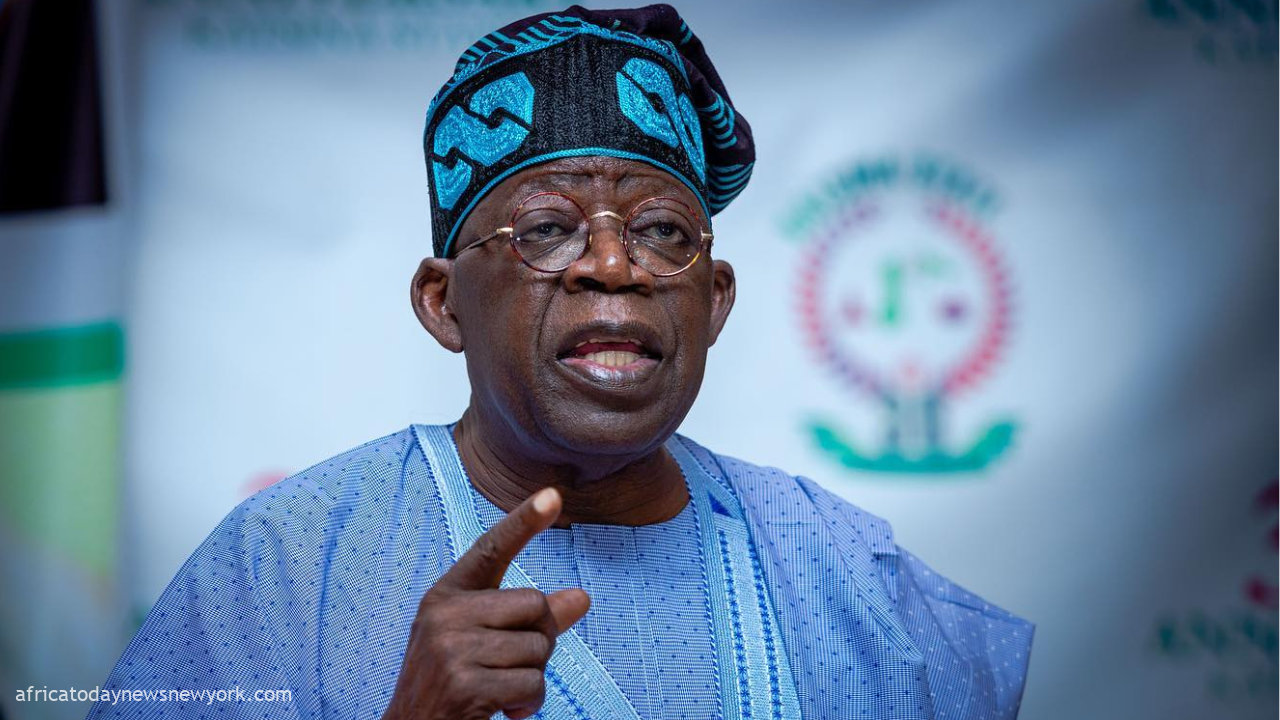Nigeria’s President-elect, Bola Tinubu appears to have quashed the hopes of advocates of a government of national unity, after he hinted that he actually favours competence over such a political arrangement.
He stated that his aim was higher than a government of national unity and would rather seek a government of national competence in selecting his cabinet members and not choosing appointees based on religion.
Tinubu spoke in a signed statement on Thursday titled, “Nigeria: At the Cusp of Renewed Hope, ’’ marking his first official statement after his declaration as president-elect by the Independent National Electoral Commission on March 1.
The presidential candidate of the ruling All Progressives Congress polled 8, 794, 726 votes to beat the Peoples democratic party candidate, Alhaji Atiku Abubakar, Labour Party’s Peter Obi and the New Nigeria Peoples Party’s Rabiu Kwankwaso.
Both Abubakar and Obi who came second and third respectively in the election are challenging the poll results in court, rejecting Tinubu’s holding out an olive branch to them. Some Nigerians however mulled a government of national unity to douse the agitations over the poll outcome.
Read Also: 2023: How Amaechi, Tonye Cole Worked Against Tinubu – Wike
Addressing Nigerians on the issue, the president-elect in the statement said, ‘As your incoming president, I accept the task before me. There have been talks of a government of national unity. My aim is higher than that. I seek a government of national competence. In selecting my government, I shall not be weighed down by considerations extraneous to ability and performance. The day for political gamesmanship is long gone. I shall assemble competent men and women and young people from across Nigeria to build a safer, more prosperous and just Nigeria. There shall be young people. Women shall be prominent. Whether your faith leads you to pray in a church or mosque will not determine your place in government. Character and competence will.’
Commenting on the presidential election whose conduct was also faulted by some individuals and asserting the rights of aggrieved contestants to go to court, the ex-Lagos State governor noted that a fair and credible poll was held and won.
He said, ‘A fair, credible election has been held and has been won. The honour of that victory and the steep responsibility it entails has fallen on me. I say this not to gloat or boast because there is no room for such behaviour. I merely state the facts as they are. I realise many good and well-meaning Nigerians voted for other candidates. They are naturally disappointed that their favoured candidate did not win. Other candidates have voiced their dissatisfaction, stating they will go to court to contest the election. This is inherent to the democratic process. We defend their right to seek legal recourse. While they exercise the legal rights afforded them in our democracy, I have set my course and mind on the leadership of this nation. We have important work to do and I am committed to getting that work done for the benefit of all the people, whether or not they voted for me or even voted at all.’’
Saying that it was not the time for continued acrimony and partisan recrimination, Tinubu added that negative things could incite strong passions; but they were not the pathway to a better nation.
The president-elect noted, ‘Only unity and national commitment can serve that purpose. Critics of Nigeria have been too quick to conclude that our political system is fragmented because of the impressive showing of new parties and their candidates. ‘These critics are wrong. The emergence of the new parties and their candidates underscores the dynamic strength of our democracy. People want democracy to work and they want to have their voices heard and interests met within it. This is a good thing to be promoted, not something to be feared’.
According to him, what must concern Nigerians is not the growth of parties but the regrowth of old prejudices and bigotries such as ethnicity, creed, and place of origin.
He observed that as a nation and individuals imbued with the love of God and of fellow man, Nigerians were better than this, adding that at some point the citizens must decide whether they shall be enticed by the ills of the past or more bravely and nobly be encouraged by the eminent prospect of a brighter future.
The president-elect said, ‘There have been times in our past when our governing institutions created more questions than they answered. But the arc of our political history gives me confidence that we can overcome that past. We have walked through the thick of the night to emerge into the light of brighter days to come. There is no good reason to retreat into the darkness of years past.’
Urging nation rebuilding and repair, he said, ‘We must begin to repair and rebuild this national home of ours. There is time to complete the task, but time is also of the essence. We must not tarry or fret over the enormity of what we face. We are able of mind and body. Now, we must show the spirit and willpower to accomplish the historic things that lie within our grasp.’
Stating that securing Nigeria and making it prosperous must be top priorities, he said that Nigerians cannot sacrifice these goals to political expediencies and the whims of politics must take a backseat to the imperatives of governance.

